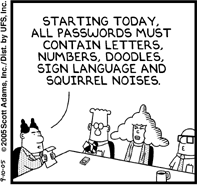(*Reprinted from Food Poisoning for Thought as part my ongoing process to unify my web presence.*)
I am currently reading "How to Fail at Almost Everything and Still Win Big" by Scott Adams, the Dilbert guy. He is talking about the difference between goals and systems. People with goals, he says, go from low to low to occasional high and are constantly failing because their goal has them looking at what they do not yet have. Whereas people with systems can call every day a success where they have practiced their system.
I know me. I am not good at consistency. I really would like to be. But I am not good at consistency. I like habitRPG, because I can balance what I need to do and and when I miss something I am paying a cost to the system, choosing one thing over another. I like the skill progression of role-playing and I like the constellation system that skyrim uses.
I have an idea about how to structure this:
Too much I need this and I need this and I need this. This is interesting. I don't like the preponderance of 'need' in this language. I wonder about the difference between languages that have words for 'to be' and those that don't. How does this effect their thinking?
I will use my ideal day as my guideline for my habits and my constellation of milestones. I don't want a timeline. Those don't seem to help or work much. I think I need to work by hand for the roughing out of the constellations and I think I need a book that I can carry with me that I can use for my personal reference and as a constant reminder.
I am currently reading "How to Fail at Almost Everything and Still Win Big" by Scott Adams, the Dilbert guy. He is talking about the difference between goals and systems. People with goals, he says, go from low to low to occasional high and are constantly failing because their goal has them looking at what they do not yet have. Whereas people with systems can call every day a success where they have practiced their system.
I know me. I am not good at consistency. I really would like to be. But I am not good at consistency. I like habitRPG, because I can balance what I need to do and and when I miss something I am paying a cost to the system, choosing one thing over another. I like the skill progression of role-playing and I like the constellation system that skyrim uses.
I have an idea about how to structure this:
- I need to account for my will power reserves, which are low.
- I need to account for the time I must contribute to my relationship with Megan. Megan is uncomfortable trying things at this point. So I will need to support her, as I have been these last two days.
- I need a way, like Skyrim and Wishcraft, to track my progress towards my end goal.
- I need a ritual, approaching samurai-esque, a coat rack to hang my Scott Adams system system on.
- I need a system that allows me to touch my many and varied goals and ambitions without overloading me.
- I need to structure my habits so that I can Multi-Task my aims and Minimum Effective Dose
Too much I need this and I need this and I need this. This is interesting. I don't like the preponderance of 'need' in this language. I wonder about the difference between languages that have words for 'to be' and those that don't. How does this effect their thinking?
I will use my ideal day as my guideline for my habits and my constellation of milestones. I don't want a timeline. Those don't seem to help or work much. I think I need to work by hand for the roughing out of the constellations and I think I need a book that I can carry with me that I can use for my personal reference and as a constant reminder.

